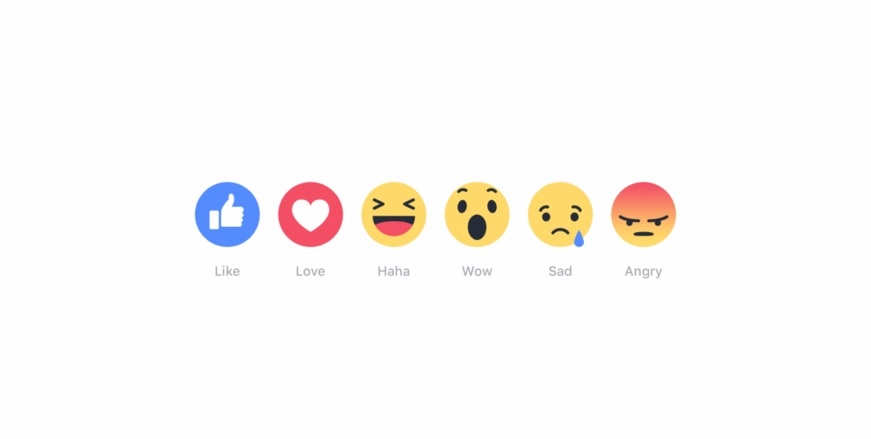


BURLINGTON – Users of popular social networking site Facebook are warmly receiving the new reaction icons that replaced the “Like” icon previously featured on the site, noting they are particularly useful for quickly distilling complex emotional reactions to stories like someone’s dead grandmother into easily digestible images.
“It’s great!”, said Dan McVeigh, a local Facebook user. “When my buddy’s grandmother died this morning, I was worried that I was going to have to express my sympathies using language – and that would take forever! But then I realized that the new features let me just use a cartoon man with a teardrop to let them know that I am sad. No need to engage with my emotions and attempt to communicate their complexities using burdensome words!”
Previously, when people were using the “like” icon, they also had to post detailed expressions of human emotion in the comments below, which would snowball into responses from others and propagate uncomfortable human interaction. That exercise cost the average user valuable seconds out of their day that could have been better spent watching cat videos, seething about someone’s multi-level marketing brainwashing, or taking arbitrary quizzes about which pop culture character you are based on the colour of your kindergarten teacher’s car.
“We all know that humans are capable of only six emotions and can only experience one emotion at a time,” explained Susan Margueles, President of Mortal Feelings at Facebook. “With this new feature, people can express love, like, amusement, excitement, surprise, sadness, and anger with the click of a button. These options are sufficient to cover any response any individual is capable of having.”
Ms. Margueles then immediately advised that she was feeling excitement at the new service.
“The best part about it is how much time it saves!” said Bill Thomas, another Facebook user. “It used to be the case that I would read a story about a mass shooting at a school and have difficulty simultaneously wrestling with sympathy over the tragedy, frustration over some people’s inability to see gun control as central to the issue, and fear that it could happen to me. Now I just click “angry” and my inner-turmoil is sufficiently expressed in fractions of a second!”
Research has already yielded some interesting patterns with the new service. Irrespective of political allegiance or positions on social issues, 84% of users have used the “anger” button exclusively – suggesting a level of outrage to every possible thing that psychologists have described as “biologically unsustainable”. Mothers, on the other hand, have been spamming the “love” icon for each of their children’s posts at speeds previously unseen on the site.
“See an interesting fact about whales? Surprise! Read an article about Islamic fundamentalists massacring villages of farmers? Sad! It’s all that simple!”, enthused Margueles.
Early reports that the icons initially were set to include more complex thoughts are so far unconfirmed. However, early beta files of the service leaked to the media reveal icons for Machiavellian Delight, Schadenfreude, Sincere Skepticism as to the Level of Your Intelligence, and Deep-Seated Resentment at the Progress Your Life is Experiencing as Compared to My Own, none of which made their way into the final product.
Twitter’s similarly time-saving “I’m Feeling Oppressed!” icon is set to launch later next week

